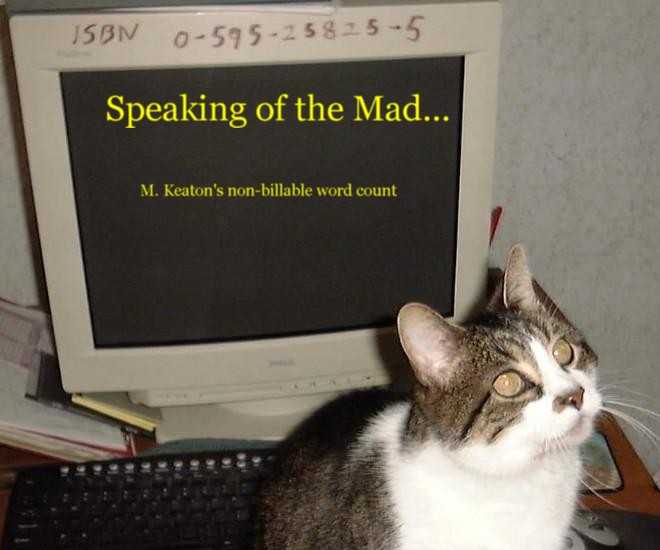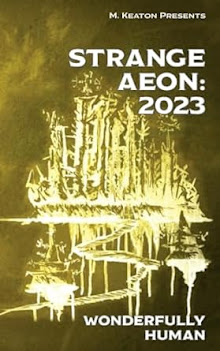May There Be a Road (a collection of short stories) by Louis L’Amour
At this point, there are very few compliments left unbestowed on L’Amour. He was a major force in the development of western literature, so much so, that his non-western works, especially those from early in his career, have been obscured. In correction of this, the reading public has come to owe a debt to his wife Kathy, daughters Angelique and Beau, and Bantam Books, for recovering and reprinting these rare gems in a series of posthumous collections.
May There Be a Road is most notable for its title story and the inclusion of another Ponga Jim Mayo tale. Ponga Jim Mayo was an early prototype of the “Indiana Jones” style of World War Two adventuring hero. May There Be a Road is historical tale writing by L’Amour in 1960 in an attempt to educate and alert the American people to the significance of the Red Chinese invasion of the Tibetan plateau.
Readers familiar with L’Amour’s westerns will find the stories in this collection simultaneously familiar and different as tales otherwise lost are resurrected and presented again for another generation.
Related Reading:
Louis L’Amour, any and all, esp. Bantam’s posthumous short story collections
Saturday, February 28, 2009
Wednesday, February 25, 2009
Foreshadowing
We had a question a few weeks back from a (significantly) younger writer and the Thin Man wanted to repost his answer here. I left the questioner's name off since I don't know if he would want to be identified (can't figure out why not but I suppose it's not always safe to be affiliated with the Thin Man).
Q: I have a question about writing. Do you consciously use foreshadowing and other things we look for in English class?
To answer your question on foreshadowing--yes, I do it a lot, especially in my horror. A lot of foreshadowing comes naturally though. Let me see if I can explain that: When you study the techniques in lit. classes, it looks like the author spends a lot of time going back and planting clues and doing all these fancy techniques. When I was in school, I reached the point I looked at all that stuff and said to myself "I'm not smart enough to write" and decided to just tell my stories and be done with. What I found out is that a lot of the fancy techniques aren't techniques as much as they are part of the writing itself. For example, if I'm writing a story and I know that one of the characters is actually a were-panther, I use a lot of feline descriptive terms for that character. It makes sense and it kind of sets the reader up to accept that revelation when it occurs. To an English teacher, that's foreshadowing. To me, it's a natural part of the process.
Q: I have a question about writing. Do you consciously use foreshadowing and other things we look for in English class?
To answer your question on foreshadowing--yes, I do it a lot, especially in my horror. A lot of foreshadowing comes naturally though. Let me see if I can explain that: When you study the techniques in lit. classes, it looks like the author spends a lot of time going back and planting clues and doing all these fancy techniques. When I was in school, I reached the point I looked at all that stuff and said to myself "I'm not smart enough to write" and decided to just tell my stories and be done with. What I found out is that a lot of the fancy techniques aren't techniques as much as they are part of the writing itself. For example, if I'm writing a story and I know that one of the characters is actually a were-panther, I use a lot of feline descriptive terms for that character. It makes sense and it kind of sets the reader up to accept that revelation when it occurs. To an English teacher, that's foreshadowing. To me, it's a natural part of the process.
Sunday, February 22, 2009
Reading Lately
Once again, I prowl through the Thin Man's stacks to see what he's been reading. I've finally figured out a way to keep track of it. Since he's semi-homeless, he lives out of boxes. All I have to do is check the outgoing box to see what he's read in the last month. The only thing I miss are the library books. Once I get that figured out, I'll finally be able to see what he reads and relate it to all of you. (That is, both people who have accidentally ended up here looking for something else and are too dazzled by all the gorgeous cat pictures to look away.)
Earthman, Come Home, Black Easter, and Day of Judgment by James Blish
Paying the Piper and The Military Dimension (Mark II) by David Drake
Fleet (Book 1) edited by Drake and Fawcett
The Wizard and the Warlord by Elizabeth Boyer
The Destroyer #46: Next of Kin by Warren Murphy
The Burglar in the Library and Everybody Dies by Lawrence Block
Skeleton Man by Tony Hillerman
Mind of My Mind by Octavia Butler
H. P. Lovecraft's Book of the Supernatural edited by Steven Jones
The Light Fantastic edited by Harry Harrison
Skeleton Crew by Steven King
(plus about twenty graphic novels including all the Hellboy stories)
Earthman, Come Home, Black Easter, and Day of Judgment by James Blish
Paying the Piper and The Military Dimension (Mark II) by David Drake
Fleet (Book 1) edited by Drake and Fawcett
The Wizard and the Warlord by Elizabeth Boyer
The Destroyer #46: Next of Kin by Warren Murphy
The Burglar in the Library and Everybody Dies by Lawrence Block
Skeleton Man by Tony Hillerman
Mind of My Mind by Octavia Butler
H. P. Lovecraft's Book of the Supernatural edited by Steven Jones
The Light Fantastic edited by Harry Harrison
Skeleton Crew by Steven King
(plus about twenty graphic novels including all the Hellboy stories)
Subscribe to:
Comments (Atom)




















